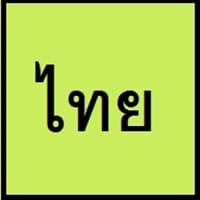Kirundi greetings vs Thai greetings
Please in Kirundi and Thai
When you want to request someone for something then it is necessary to say please. But if you don't know how to say please in Kirundi and Thai then it disappointing. So, Kirundi Greetings vs Thai greetings helps us to learn please in Kirundi and Thai language.
- Please in Kirundi : Ndagusavye.
- Please in Thai : โปรด (Pord).
In some situations, if you need to apologize then Kirundi greetings vs Thai greetings provides to say sorry in Kirundi and Thai language.
- Sorry in Kirundi : Not available.
- Sorry in Thai : ขอโทษ (K̄hxthos̄ʹ).
You can also learn useful phrases of Best Languages to Learn.
How are you in Kirundi and Thai
After you say hello to someone then you will want to ask how are you? And if you wish to know what's how are you in Kirundi and Thai then Kirundi greetings vs Thai greetings helps you.
- How are you in Kirundi is Urakomeye?.
- How are you in Thai is คุณเป็นอย่างไร? (Khuṇ pĕn xỳāngrị?).
Even though greetings remain same in almost all the dialects of the language, their pronunciations and accents vary from each dialect to dialect. Know more about such dialects on Kirundi vs Thai Dialects.
Other Kirundi and Thai Greetings
Are you finding few more Kirundi greetings vs Thai greetings? So let's compare other Kirundi and Thai greetings.
- Good Morning in Kirundi is Mwaramutse.
- Good Night in Kirundi is Ijoro ryiza.
- Good Morning in Thai is อรุณสวัสดิ์ (Xruṇ s̄wạs̄di̒).
- Good Night in Thai is นอนหลับฝันดี (Nxn h̄lạb f̄ạn dī).





